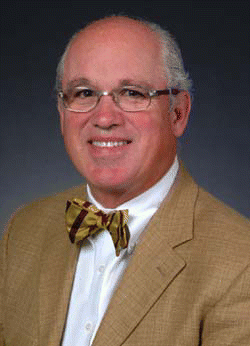Harold (Rick) Pillsbury, MD, President-Elect of the Triological Society, has been predicting for 10 years that there would be a need to hire people to help extend otolaryngology practices—in other words, physician assistants (PAs) and nurse practitioners (NPs). “I was right. That makes me the soothsayer here,” he joked.
Explore This Issue
March 2007But needing to extend the provision of care, he will tell you, is no joking matter. Physicians have become increasingly busy and the ability to simultaneously provide quality care, expand one’s patient base, and draw in sufficient revenue is a problem that faces most otolaryngologists. There are definite benefits to adding PAs and NPs to the practice, however, and there are key issues that otolaryngologists should be aware of when hiring them.
Benefits, Risks, and Requirements
Quality was a word Dr. Pillsbury mentioned often when he discussed the benefits of working with PAs and NPs: the quality of time the doctor spends with patients?those who have serious problems and those whose problems are not as intense. If you have “somebody with enough expertise to handle the basic issues that come in and can help you sort those things out and see more patients, you have better quality in every visit,” he said.
The inherent risks or pitfalls of providing patient care with the help of NPs or PAs pertain to how well these individuals can perform assessments, said Dr. Pillsbury, who is the Thomas J. Dark Distinguished Professor of Otolaryngology–Head and Neck Surgery at the University of North Carolina at Chapel Hill Medical Center. PAs, in particular, may view patient problems from a global perspective as opposed to one specifically honed in otolaryngology practice. “They may be less impressed with some of the symptoms they see than perhaps they ought to be.”
For example, he said, the patient who presents as a little bit dizzy might have an acoustic tumor, an impending stroke, or a number of other diagnoses not exclusively and clearly based on the symptom complex. Other examples are a patient with unilateral tinnitus who might have an acoustic tumor; a patient with a plugged-up nose on one side who might have a cancer; or a child who has had a runny nose on one side for six months who might have an ENT foreign body. Training an ancillary provider to recognize those possibilities “isn’t done overnight,” he said.
Most PAs and NPs are educated with the context of family practice as their primary background. Dr. Pillsbury speculated that if you begin with someone who has a basic level of motivation and talent, training would take six months to a year for them to become facile with the required clinical needs for otolaryngology.

Leave a Reply